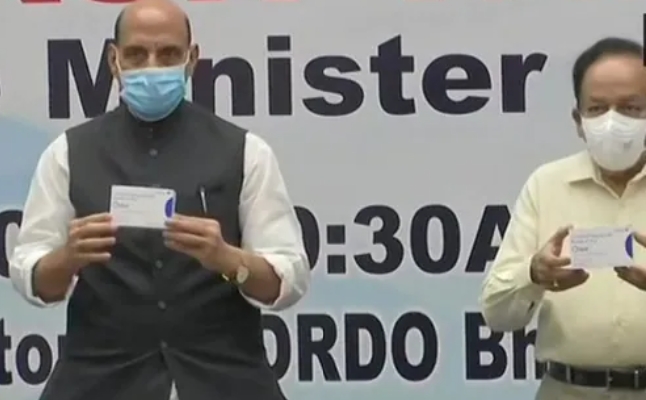The first batch of drug 2-deoxy-D-glucose drug to treat Covid-19 patients has been launched. The drug has been developed by the Defence Research and Development Organisation (DRDO) in collaboration with Dr Reddy’s Laboratories (DRL).The DGCI granted emergency use nod for the drug last week. The drug could be a game-changer in the battle against pandemic as it helps in faster recovery of hospitalised patients and reduces oxygen dependence.The 2-DG (2-deoxy-D-glucose) is an anti-COVID-19 therapeutic application of the drug. It has been developed by the Institute of Nuclear Medicine and Allied Sciences (INMAS), a lab of DRDO in collaboration with Dr Reddy’s Laboratories.According to a PTI report, clinical trial results have shown that this molecule helps in faster recovery of hospitalised patients and reduces supplemental oxygen dependence. Higher proportion of patients treated with 2-DG showed RT-PCR negative conversion in COVID patients.In April 2020, during the first wave of the pandemic, INMAS-DRDO scientists conducted laboratory experiments with the help of Centre for Cellular and Molecular Biology (CCMB), Hyderabad, and found that this molecule works effectively against SARS-CoV-2 virus and inhibits the viral growth.Based on these results, the Drugs Controller General of India (DCGI) Central Drugs Standard Control Organisation (CDSCO) permitted Phase-II clinical trial of 2- DG in COVID-19 patients in May 2020. The DRDO, along with its industry partner DRL, Hyderabad, started the clinical trials to test the safety and efficacy of the drug in COVID-19 patients.In Phase-II trials (including dose ranging) conducted during May-October 2020, the drug was found to be safe in COVID-19 patients and showed significant improvement in their recovery. Phase-II was conducted in six hospitals and Phase IIb (dose ranging) clinical trial was conducted at 11 hospitals all over the country. Phase-II trial was conducted on 110 patients.
EDITOR PICKS
POPULAR POSTS
ABOUT US
SACH News TM- voice of people of Jammu Kashmir. We are Publishing House of Sach Jammu(English Weekly). Sach News is one of the popular weekly newspaper of Jammu. We provide you Latest news on politics, sports, crime, education, real estate, business entertainment and much more.
Contact us: [email protected]
© Sach News 2014-2023 | Maintained by Webng.in





